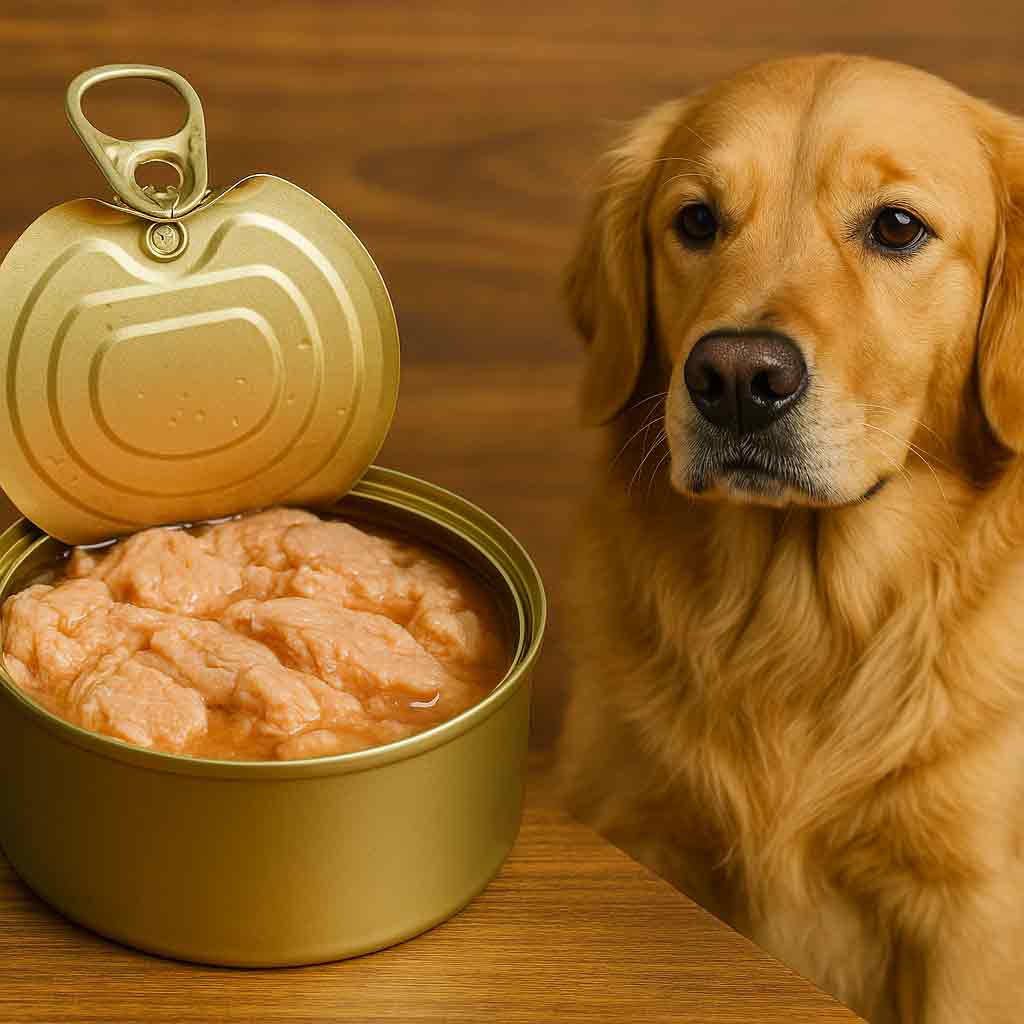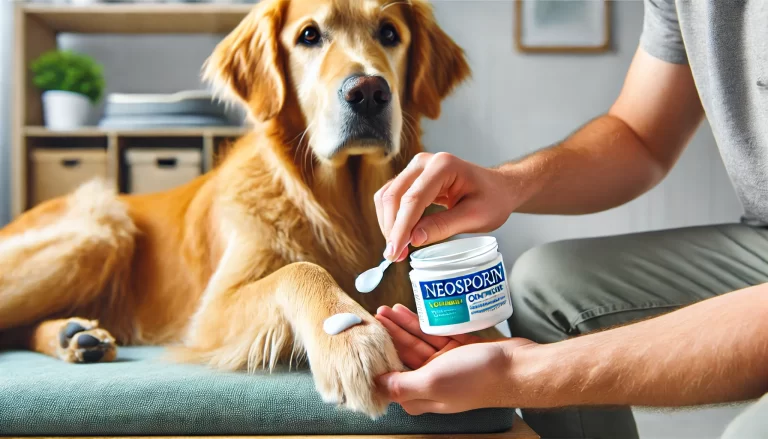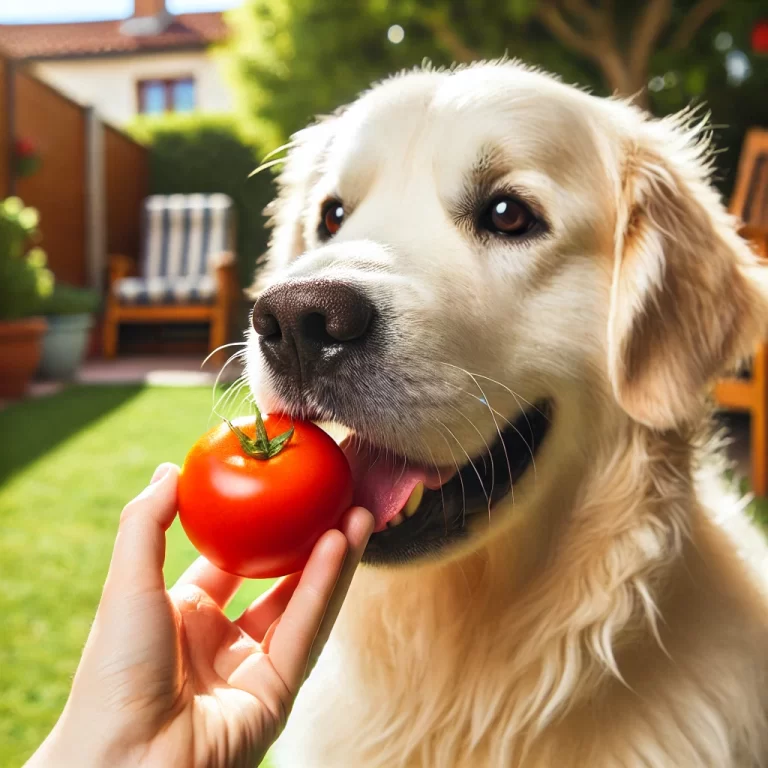Can Dogs Eat Canned Salmon? Benefits, Risks & Safer Alternatives
As pet owners, we all want the best for our furry companions—and that includes feeding them nutritious, safe foods. Fish, especially salmon, is often praised for its health benefits in human diets. But what about dogs? Can dogs eat canned salmon? The answer is yes, but with important caveats.
In this detailed guide, we’ll explore the safety, benefits, and best practices for feeding your dog canned salmon. We’ll also answer common questions and provide tips for incorporating this omega-rich food into your dog’s diet safely and effectively.
Is Canned Salmon Safe for Dogs?
Yes, dogs can eat canned salmon as long as it is packed in water and doesn’t contain harmful additives like onions, garlic, or excess salt. Salmon is rich in protein, omega-3 fatty acids, and essential nutrients that can support your dog’s health. However, not all canned salmon is created equal, and it’s important to choose the right type.
What to Look for:
- No added salt: Sodium can be harmful in large amounts.
- No spices or flavorings: Garlic and onion are toxic to dogs.
- Packed in water, not oil: Oil adds unnecessary fat and calories.
- No bones (or soft, edible bones only): Some canned salmon includes soft bones that are safe to eat, but avoid any large or sharp bones.
Nutritional Benefits of Canned Salmon for Dogs
1. High-Quality Protein
Salmon is a complete protein, meaning it contains all essential amino acids. Protein supports muscle development, energy, and immune health.
2. Omega-3 Fatty Acids
Omega-3s (EPA and DHA) in salmon help reduce inflammation, improve skin and coat health, and support brain and joint function.
3. Rich in Vitamins and Minerals
Canned salmon provides a good source of:
- Vitamin D
- Vitamin B12
- Niacin
- Selenium
- Potassium
These nutrients contribute to heart health, metabolism, nerve function, and more.
How Much Canned Salmon Can Dogs Eat?
Moderation is key. Canned salmon should be an occasional treat or supplement, not a main course. A good rule of thumb is:
- Small dogs: 1-2 tablespoons once or twice a week
- Medium dogs: Up to 1/4 cup per serving
- Large dogs: Up to 1/2 cup per serving
Always introduce salmon slowly to see how your dog reacts, and adjust portion sizes accordingly.

Risks and Precautions
1. Too Much Sodium
Even “no salt added” canned salmon contains some natural sodium. Overconsumption can lead to dehydration, high blood pressure, or kidney problems.
2. Potential Allergies
Some dogs may be allergic to fish. Symptoms can include itching, digestive upset, or ear infections. If you notice any unusual behavior, discontinue feeding and consult your vet.
3. Mercury and Toxins
All fish contain trace amounts of mercury, but salmon is generally low in mercury compared to larger species like tuna. Still, limit consumption to avoid long-term buildup.
4. Pancreatitis Risk
Fatty foods, especially those canned in oil, can increase the risk of pancreatitis, a painful and serious condition. Always choose salmon packed in water.
Can Dogs Eat Canned Salmon Every Day?
No, it’s not advisable to feed canned salmon to your dog daily. While salmon is nutritious, too much fish can lead to nutritional imbalances or mercury accumulation over time. Stick to feeding canned salmon as a supplement, not a staple.
Homemade Dog Meals With Canned Salmon
Adding canned salmon to your dog’s food is a great way to boost flavor and nutrition. Here are a few healthy ideas:
1. Canned Salmon and Rice Bowl
Mix a small portion of canned salmon with cooked white or brown rice and steamed vegetables like carrots or green beans.
2. Salmon and Pumpkin Mix
Combine canned salmon with plain canned pumpkin (not pie filling). This fiber-rich meal is gentle on digestion.
3. Frozen Salmon Treats
Blend canned salmon with plain yogurt and freeze in silicone molds for a refreshing treat.
Alternatives to Canned Salmon for Dogs
Looking for other healthy fish or protein options? Consider:
- Cooked fresh salmon (boneless, skinless)
- Sardines (in water, no salt)
- Cooked whitefish
- Lean meats like chicken or turkey
Always ensure meats and fish are cooked thoroughly and served without seasoning.
Common Questions About Dogs and Canned Salmon
Can Puppies Eat Canned Salmon?
Yes, puppies can have small amounts of canned salmon, but start with very small portions. Make sure it’s free from salt, bones, and additives. Talk to your vet before adding new foods to a puppy’s diet.
Can Dogs Eat Salmon Bones from the Can?
Some canned salmon contains soft, edible bones that are safe for dogs. However, always check first. If the bones seem hard or sharp, remove them.
What About Canned Salmon in Oil?
It’s best to avoid salmon canned in oil. The added fat may upset your dog’s stomach or contribute to weight gain and other health issues.
Can Dogs Eat Raw Salmon?
No. Raw salmon can carry a parasite called Neorickettsia helminthoeca, which causes salmon poisoning disease (SPD) in dogs. Always feed cooked or canned salmon.
Final Verdict: Can Dogs Eat Canned Salmon?
Yes, dogs can safely eat canned salmon in moderation, provided it’s plain, packed in water, and free from added salt, garlic, or onions. This nutritious treat offers numerous health benefits, from supporting a shiny coat to promoting joint and brain health.
As with any new food, start small, observe for reactions, and always consult your veterinarian if you have concerns.
Key Takeaways
- Canned salmon can be a healthy, protein-rich treat for dogs.
- Choose salmon packed in water with no added salt or flavorings.
- Feed in moderation to avoid sodium overload and mercury exposure.
- Avoid raw salmon and oil-packed varieties.
- Introduce gradually and consult your vet with any concerns.
With the right precautions, your dog can enjoy the nutritional perks of salmon just as much as you do!







